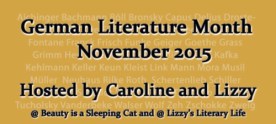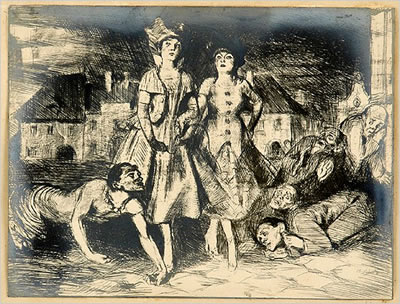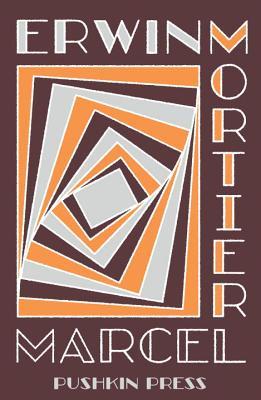Over the course of his life, Stefan Zweig was a most prolific writer, known not only for his novels and plays, but also for a wide range of historical and literary biographies. He has been criticized as a lightweight by those who fail to appreciate his charms, but it is difficult to deny the passion for literature and lifelong learning that informed his work. With his biographical subjects he followed the topics and personalities that caught his attention and, perhaps as a consequence, he was drawn to write about those whose work and ideas he admired, as well as some of the figures who played darker roles in history.
 The last of the writers to captivate him, the subject of his final book, was Michel de Montaigne. Hitler’s rise to power in 1934 drove Zweig from his native Austria to England, but by 1940, with Europe torn apart by war, he crossed the Atlantic to New York City where he stayed briefly before moving even further to Petrópolis, a German community in Brazil. Here in the mountains north of Rio de Janeiro, far from the library he been forced to abandon in Vienna, he would uncover a dusty copy of Montaigne’s Essais in the cellar of his house. He made this fortuitous discovery in the autumn of 1941 and his delight in it would preoccupy the final months of his life. In February of 1942, Stefan Zweig and his wife were found dead in their home. It is not certain but, as much as Montaigne provided him the comfort of a kindred spirit speaking out across the centuries, he may have also inspired or reinforced his decision to end his own life.
The last of the writers to captivate him, the subject of his final book, was Michel de Montaigne. Hitler’s rise to power in 1934 drove Zweig from his native Austria to England, but by 1940, with Europe torn apart by war, he crossed the Atlantic to New York City where he stayed briefly before moving even further to Petrópolis, a German community in Brazil. Here in the mountains north of Rio de Janeiro, far from the library he been forced to abandon in Vienna, he would uncover a dusty copy of Montaigne’s Essais in the cellar of his house. He made this fortuitous discovery in the autumn of 1941 and his delight in it would preoccupy the final months of his life. In February of 1942, Stefan Zweig and his wife were found dead in their home. It is not certain but, as much as Montaigne provided him the comfort of a kindred spirit speaking out across the centuries, he may have also inspired or reinforced his decision to end his own life.
Zweig opens his biography with a confession that when he first encountered Montaigne at the age of 20, he was filled with youthful idealism for the new century that was dawning. He could not imagine what relevance he might find in this “Frenchman already yellowed by time and lost in the riddles of his Latin quotations”. Ahead he could only envision the prospects of peace and progress. Rediscovering Montaigne 40 years later, he found immediate parallels between the violent upheaval of the years of the Reformation and the devastating collapse of 20th century glory into the brutal waves of intolerance and destruction sweeping Europe. Curiously, the age of 20 was also the age at which Montaigne himself decided to end his formal education on the conviction that by 20 the soul is formed and thus, beyond that point, the spirit will not be further enhanced. He would, of course, turn his attentions inward in his lifelong effort to understand that soul.
There is, in the course of this short biographical account, little that will be new to anyone acquainted with the general details of Montaigne’s life and writings. What is of more interest is what this essay reveals about Zweig’s mindset in the last winter of his life. This is very clearly a personal undertaking. Even though Zweig set about researching the social and political context in which Montaigne lived, the resulting work was never subjected to a judicious edit and, as it exists, it tends to be overly repetitive in some aspects, especially where Zweig’s enthusiasm runs high. He finds in Montaigne a friend, a wise counsel so desperately needed when his own despair at the state of the world is reaching an all time low and, as such, he is inclined to defend his friend against his critics even if his arguments tend to be based in emotion rather than reason. The only criticism he himself is willing to levy is with respect to his hero’s noted disregard for his children and the women in his life, and his desire to find refuge from their demands on his energies. Still, Montaigne’s withdrawal to his tower to contemplate the nature of the self – that is, the self that interests him most dearly: his own – is a choice that draws Zweig’s sympathy and support.
As a writer and a lifelong lover of literature and history, Zweig finds a like-minded ally in Montaigne. He admires the way that Montaigne engages with books. He reads without obligation or duty, choosing to discard books that are not working for him. As Zweig remarks:
“He is without doubt a serendipitous reader, an amateur reader, but there has never been, in his time or in any other, a finer or more perceptive reader. Concerning Montaigne’s judgement on books I am 100 per cent in accordance.”
Later he continues:
“The great lesson Montaigne receives from books is that reading, in its rich diversity, sharpens his faculty of judgement. It impels him to respond, to lend his own counsel. And this is why Montaigne tends to annotate his books, underlining passages and writing at the end the date on which he read them, or the impression that they made on him in that moment.”
It is hard to argue with this sentiment. Two lovers of books, passionate about reading are bound to feel instant kinship, even when reaching across time and space. For a man in exile, cut off from his intellectual community in Europe, it is not difficult to imagine that Zweig felt he had found a soul mate in Montaigne.
But then why was this bond, this example of a man so firmly dedicated to the question of how one should live, not sufficient to carry Zweig through his darkest hours? Montaigne is careful in his essays not to dictate how others should live. His focus is always turned inward. He shares what he finds and what he comes to believe he should strive for in living. Zweig draws up a list of the constraints that Montaigne expresses a desire to avoid including: vanity or pride, presumption, fear and hope, belief and superstition, ambition and avarice, fanatacism, and family and familiar surroundings. There is, however, one more:
“And one last freedom: in the face of death. Life hangs on the will of others, but death on our own will: ‘La plus volontaire mort c’est la plus belle.’”
That is, he insists, the most voluntary death is the most beautiful. If Zweig who was known to struggle with depression had already contemplated suicide (and according to the translator’s introduction he had expressed that sentiment before), one cannot help but wonder if he found some measure of validation in Montaigne’s writings.
This biography stands as an example of the deeply personal impact that literature can have on a reader. Zweig argues that there are writers who come to you, or come back to you, at the time when you are ready to hear them. This final work took precedence over any of this other writing projects in the months leading up to February 22, 1942, the day he and his wife each took an overdose of barbiturates and lay down together hand in hand. In a sense Montaigne exists as a final effort for a sensitive writer to make peace with a world that seemed to have spun off its axis. For that reason alone it is worth the read.
Translated from the German by Will Stone, Montaigne by Stefan Zweig is a new released from Pushkin Books.









